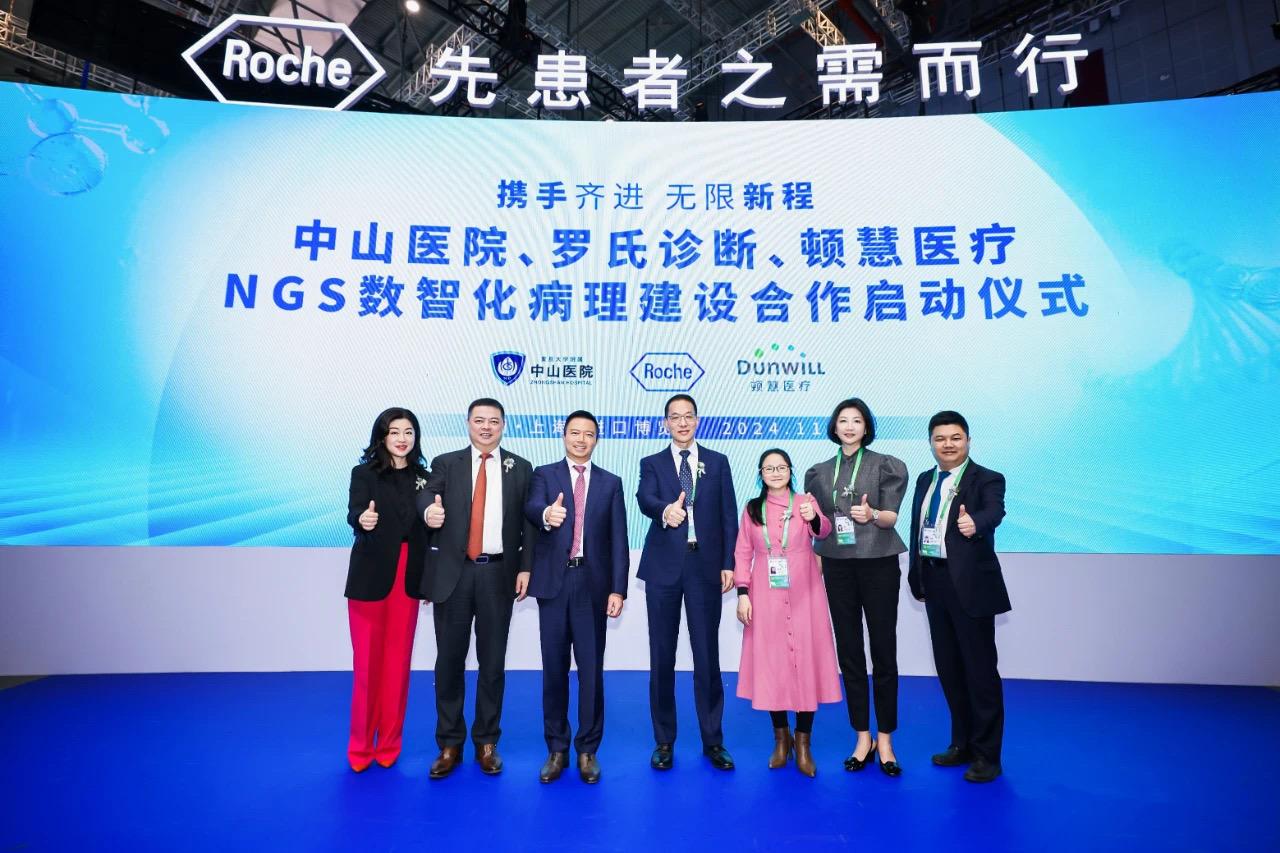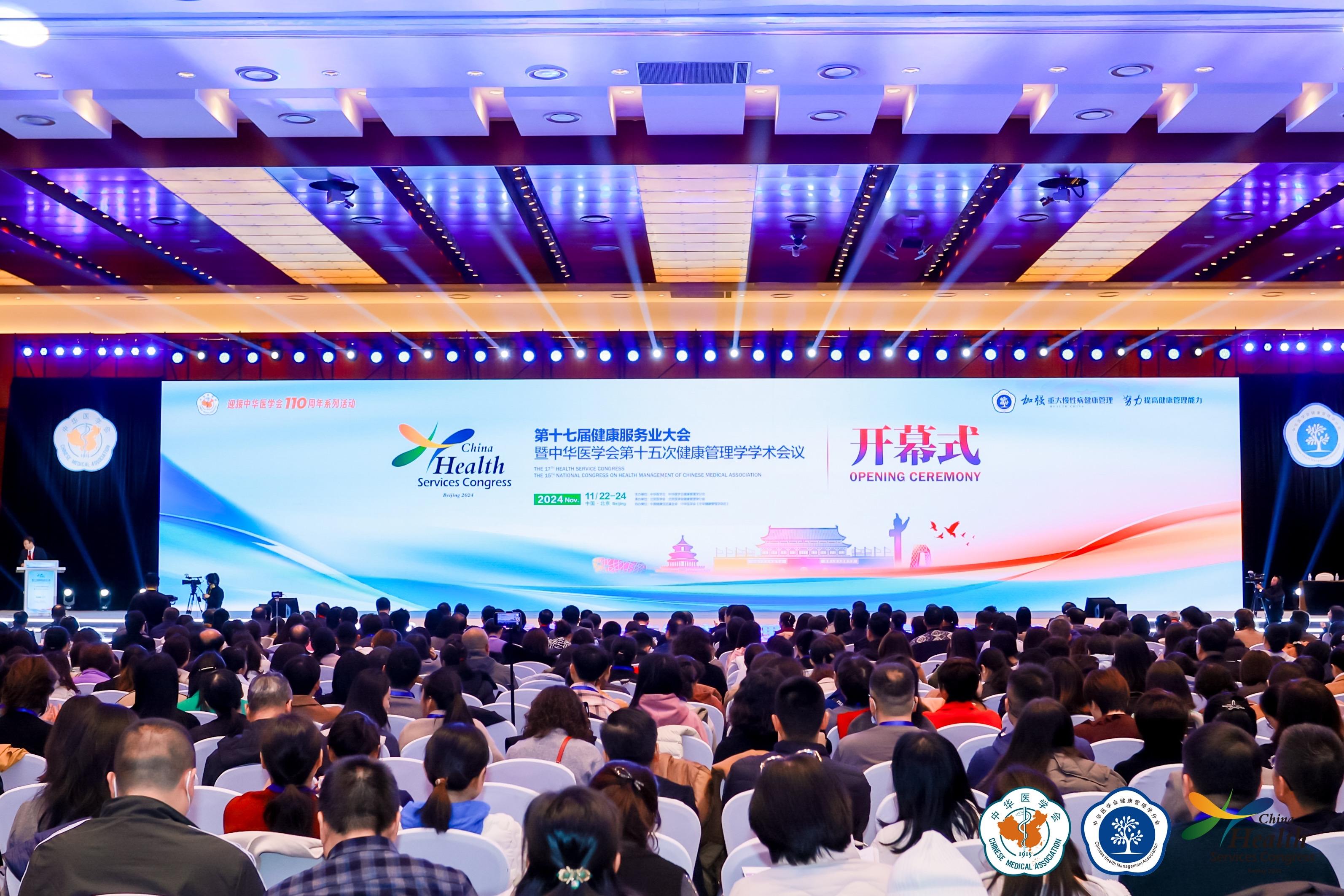Focus on Translational and Precision Medicine Session | The First Fudan Zhongshan Gastric Cancer Surgery and Translational Medicine Conference was Successfully Held
Recently, the "2024 Fudan Zhongshan Gastric Cancer Surgery and Translational Medicine Conference" with the theme of "From BasicScience to ClinicPractice" was successfully held at the Pullman Shanghai Zhongganghui Hotel, hosted by the Beijing Zhongkang Union Public Welfare Foundation and Beijing Health Promotion Association, co organized by the Shanghai Medical Association and the Chinese Journal of Practical Surgery, and organized by Zhongshan Hospital Fudan University.
Over a hundred multidisciplinary experts from all over the country gathered together to conduct in-depth discussions on cutting-edge topics such as standardized diagnosis and treatment of gastric cancer surgery, whole course management, cell therapy, and liquid biopsy. The conference achieved online and offline linkage, attracting over 500,000 professional audience members and creating a cross regional and multi-level academic exchange platform.
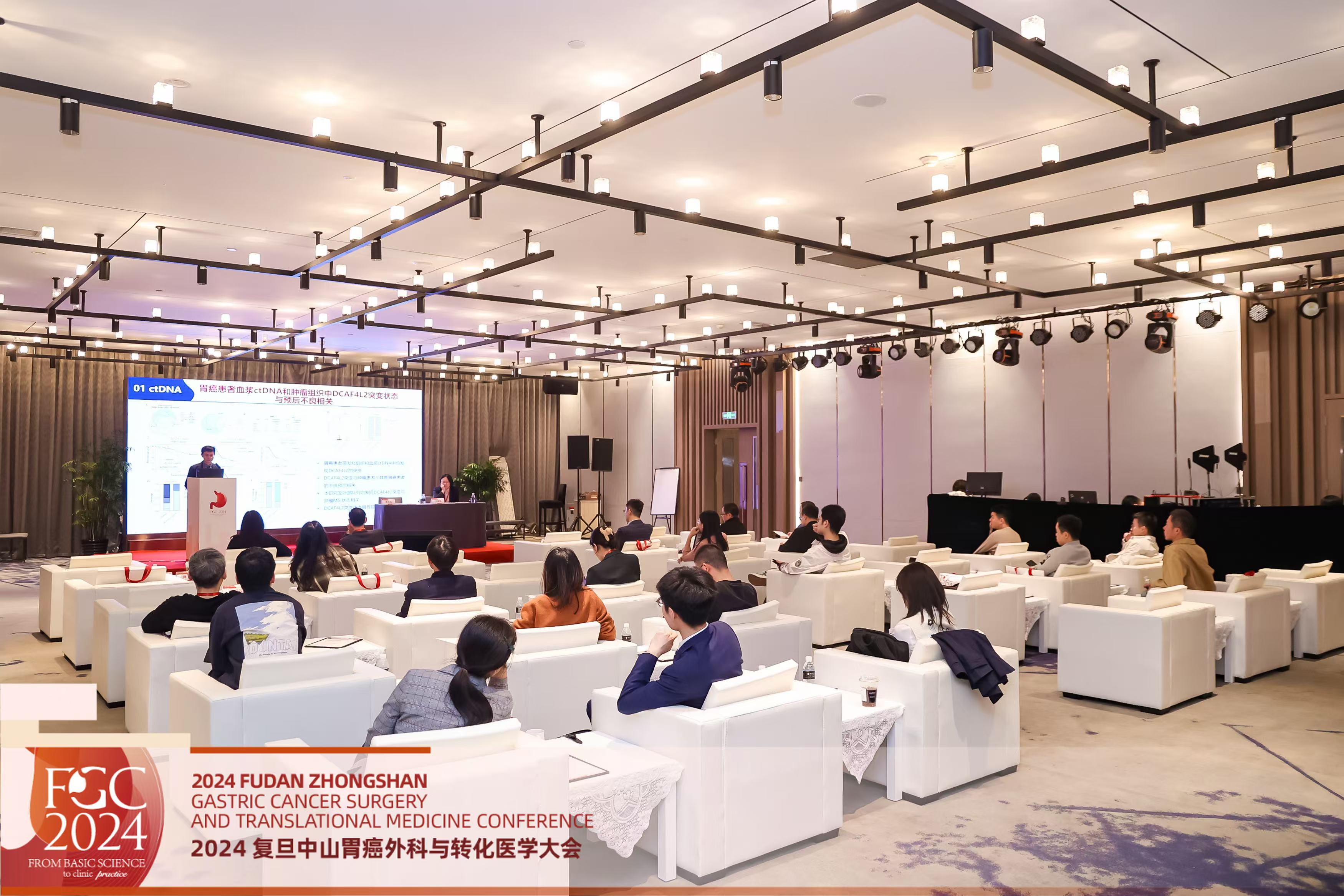
In the first chapter of the "Cell Therapy" report section of the "Translational and Precision Medicine Session" at the conference, Professor Sun Yunfan from the Department of Liver Cancer Surgery at Zhongshan Hospital Fudan University shared a keynote speech entitled "Tumor Ecosystem and Cell Therapy". He discussed cell therapy based on the extensive research work of the Zhongshan Hospital Liver Cancer Research Institute in the field of tumor ecosystem, bringing a wonderful academic feast to the attending guests.
Professor Sun pointed out that cancer metastasis and recurrence are complex temporal and spatial processes with multiple steps. Currently, the mechanism of tumor cell colonization is not clear, and how liver cancer cells can overcome immune pressure and establish a suitable ecosystem for metastasis and recurrence after leaving the primary tumor is the focus of research.
Firstly, Professor Sun's team compared the single-cell full-length transcriptomes of early recurrent lesions and primary lesions, revealing that their immune ecosystems are completely different. Recurrent liver cancer cells shape the immunosuppressive ecosystem of recurrent liver cancer through the loss of new antigens and PD-L1 (Cell 2021). In addition, Professor Sun's team, together with Dunwill Medical and ShanghaiTech University, used WES, RNA seq, immunohistochemistry library, spatial transcriptome, digital pathology analysis, and PDO model to establish a multi omics dataset of primary/metastatic/recurrent tumors containing 461 samples from 182 liver cancer patients, and found that liver cancer metastases have high heterogeneity; Metastatic tumors with high heterogeneity of neoantigens have less infiltration of anti-tumor immune cells and less proliferation of T cell clones, resulting in poorer prognosis for patients (Cancer Cell 2024).
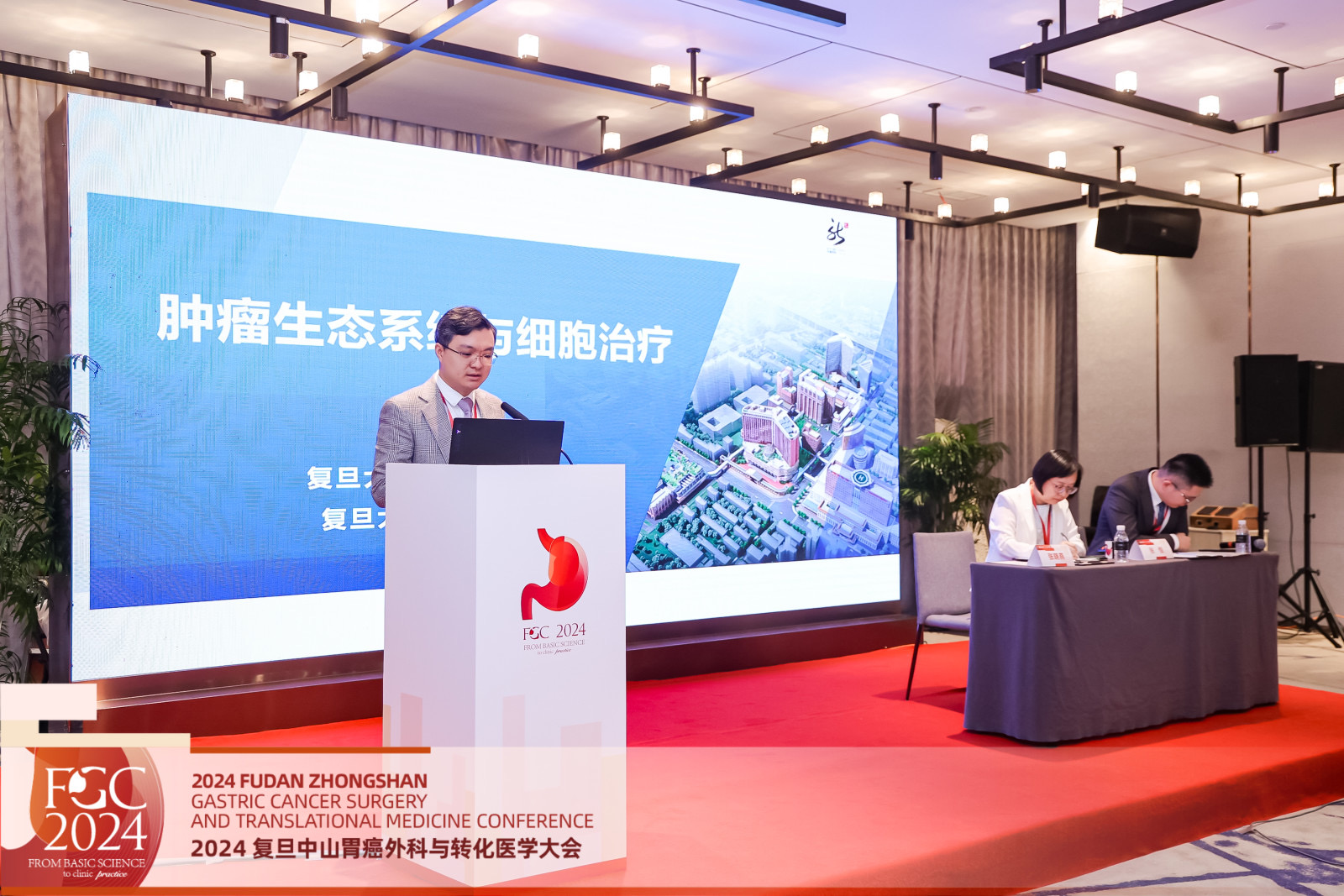
Recently, Professor Sun's team collaborated with Dunwill Medical's multi-omics platform, BGI Research Institute, and ShanghaiTech University to establish a spatiotemporal multi omics dataset at the single-cell scale. The latest research found that the transcriptome of tumor cells corresponds perfectly to physical time points, and the tumor microenvironment and tumor cells undergo co evolution during metastasis. T cell immune failure may be a key mechanism for metastasis and recurrence.
Professor Sun pointed out that there is still a long way to go in improving the therapeutic effect of tumor infiltrating lymphocytes (TIL), but the opportunities outweigh the challenges. The ecosystem of metastatic recurrent lesions is completely different from that of primary lesions and different organ metastases. It is necessary to develop differentiated cell therapy strategies based on the characteristics of the metastatic recurrent lesion ecosystem, screen and expand tumor reactive TILs, which are expected to improve cell therapy efficacy and significantly improve TIL function by removing various inhibitory factors within the microenvironment. Overcoming T cell defects in metastasis and recurrence will bring hope for cell therapy of solid tumors.
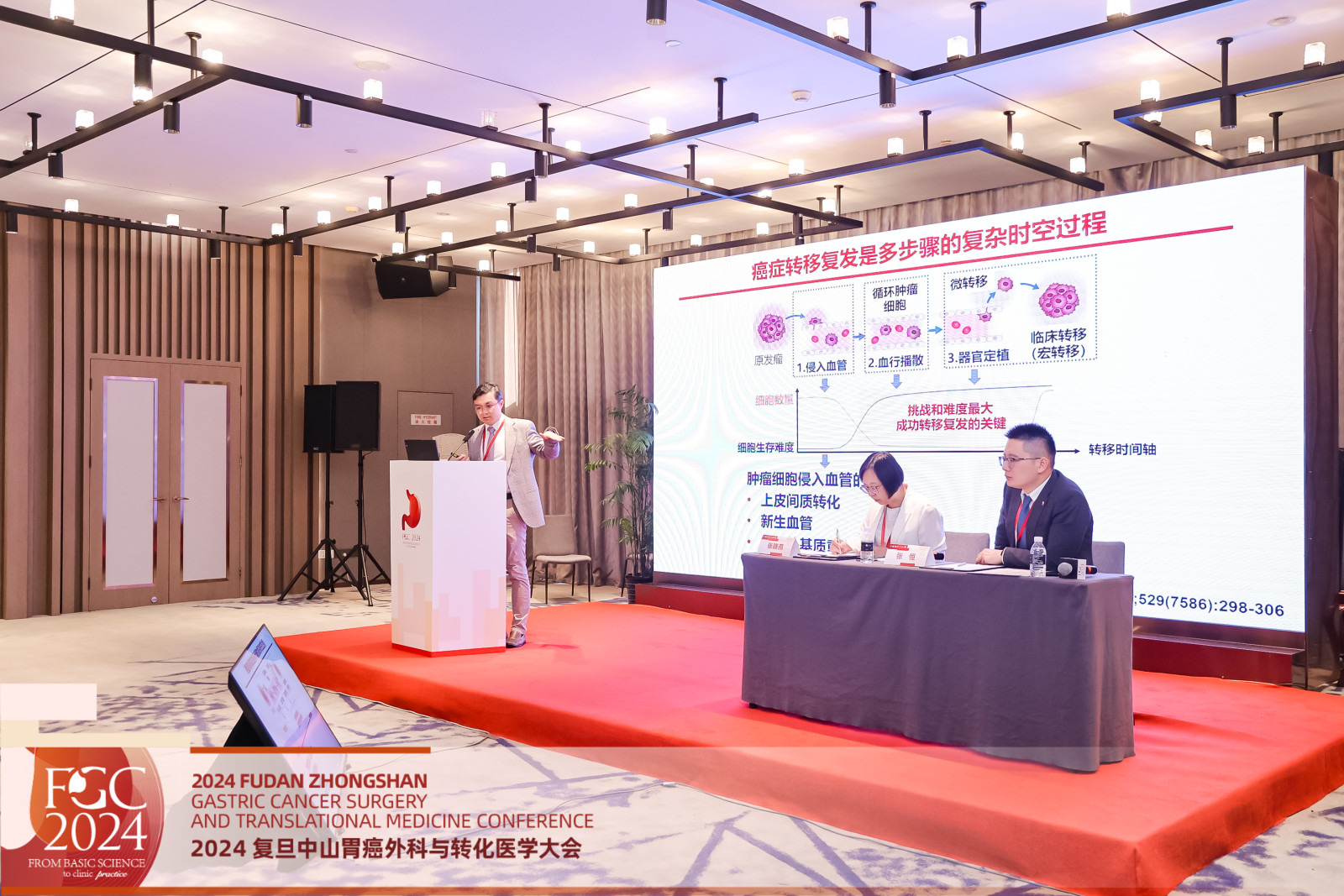
In the second chapter of the "Translational and Precision Medicine Special Session" titled "Liquid Biopsy", Professor Tang Zhaoqing from the Department of General Surgery at Zhongshan Hospital Fudan University shared a wonderful thematic report entitled "Exploration of Clinical Application of Gastric Cancer Liquid Biopsy - Zhongshan Experience". Professor Tang introduced Zhongshan Hospital's exploration of gastric cancer liquid biopsy at three levels: circulating tumor DNA (ctDNA), circulating tumor cells (CTC), and serum proteome.
Firstly, he introduced a prospective study based on the NGS platform of Dunwill Medical, which found that ctDNA levels one month after surgery can reflect poor prognosis. Patients with elevated ctDNA levels indicate a higher risk of recurrence and shorter survival. Subsequently, he introduced a retrospective study based on Dunwill Medical's CTC negative enrichment immunofluorescence specific recognition technology, which included 619 patients and 729 samples. The preliminary analysis results showed that there was a high CTC detection rate in resectable gastric cancer patients both before and after surgery, and the CTC positive rate was higher in patients with postoperative recurrence; The positivity rate of bone metastasis CTC is the highest among patients with metastasis. The morphological classification of gastric cancer CTC cells is closely related to distant metastasis and postoperative recurrence, and CTC morphology may have higher prognostic value than CTC quantity.
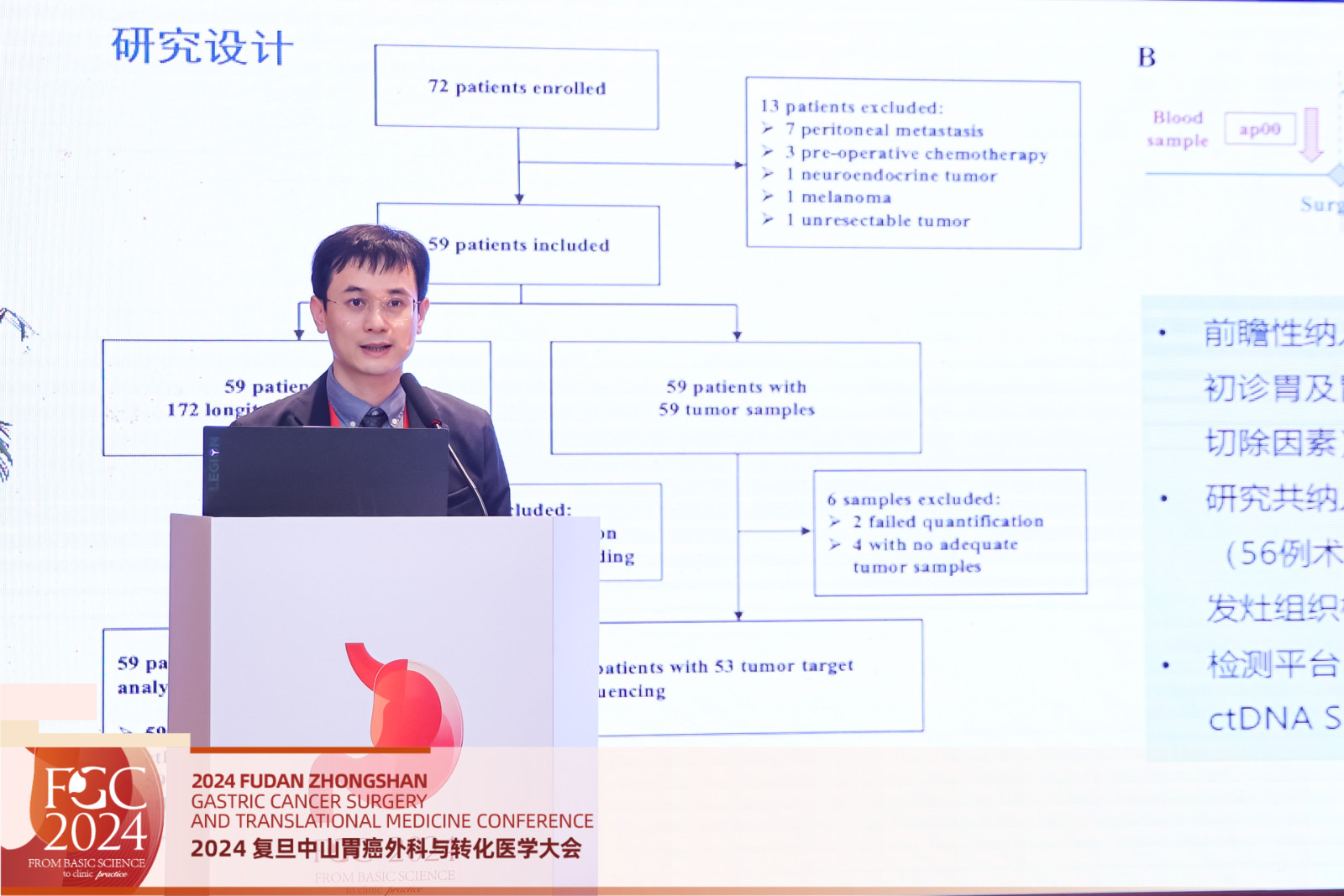
Finally, he introduced the serum proteomics early diagnosis of gastric cancer research project based on Dunwill Medical Mass Spectrometry technology platform. In the first phase of the project, serum samples were collected from 533 gastric cancer patients and 356 non gastric cancer patients. Through step-by-step screening, a gastric cancer early diagnosis model composed of 20 proteins was determined and established, which demonstrated extremely high performance (AUC>0.9) on both the training and testing sets.
Professor Tang pointed out that liquid biopsy of gastric cancer will encounter various difficulties and challenges, such as the selection of ctDNA detection methods, the determination of ctDNA positive and negative cutoff values, the meaning of postoperative CTC positive values, the identification of key CTCs related to tumor metastasis, the layer by layer screening of serum protein markers, serum protein MRD, and the reproducibility of detection results. Although not easy to overcome, once breakthrough is achieved, it will be a truly groundbreaking achievement.
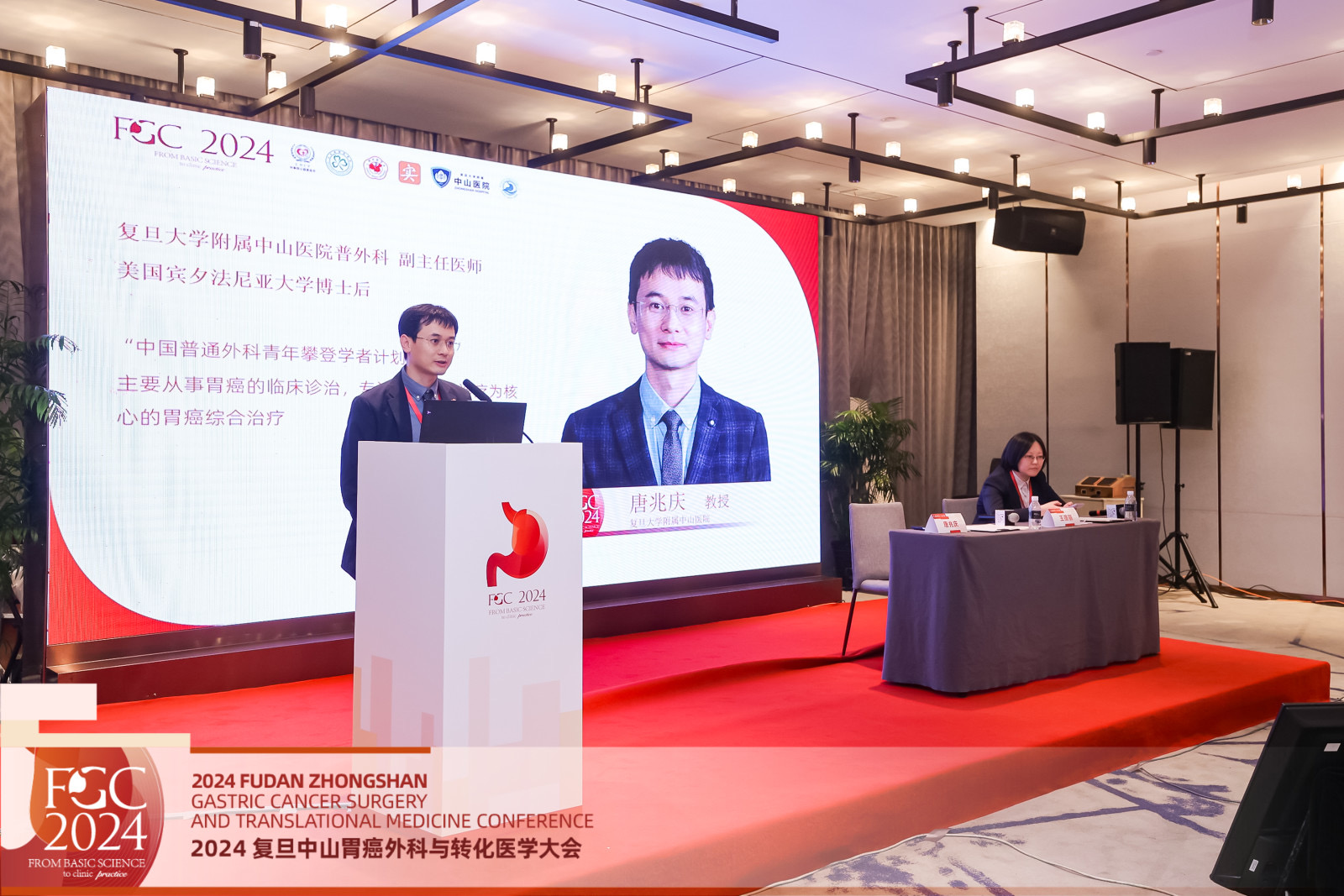
The purpose of this conference is to grasp the current development direction of translational medicine, gather experts from various fields through the collision and exchange of basic and clinical knowledge, form new norms and standards from basic science to clinical practice, and continuously improve the diagnosis and treatment level and quality of life of gastric cancer patients.
This conference provides valuable academic insights and experience guidance for clinical practice among medical colleagues, helps the development of gastric cancer surgery and translational medicine, and contributes wisdom and strength to the grand goal of "Healthy China 2030" together.


